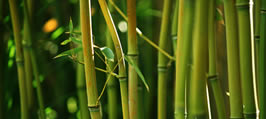 Bones are made of a lot of minerals sitting in a flexible cellular and collagen (stretchy, bendy structure). There is a hard outer bone and a soft bone marrow in many of the bones like the long leg bones. It is not just calcium that makes up healthy bones, but also magnesium and other essential trace minerals like Boron, Strontium and so on.
Bones are made of a lot of minerals sitting in a flexible cellular and collagen (stretchy, bendy structure). There is a hard outer bone and a soft bone marrow in many of the bones like the long leg bones. It is not just calcium that makes up healthy bones, but also magnesium and other essential trace minerals like Boron, Strontium and so on.
There is interesting research coming out to suggest that it is calcium from living food sources combined with supplemental calcium and Vitamin D that makes for good strong bones. Not just calcium supplementing on its own.
In Asian countries where there is not a lot of dairy in the diet there are still very strong bones as the elderly naturally eat a lot of greens and keep physically active.
reens are rich in minerals. In fact magnesium is one of the key minerals in green vegetable foods and helps give bones strength and flexibility. You want “green bamboo” bones that bend, not “brittle, old, dry bamboo” that snaps, or breaks. Magnesium helps keep the bones flexible.
To absorb minerals it is really important to have a healthy digestive system that can absorb minerals. More and more research points to the fact that Vitamin D is essential for a healthy gut. In fact Vitamin D makes the “mucus membrane” lining of the gut healthy so you can actually digest and absorb minerals. People with coeliac disease from gluten damage are more at risk for developing early bone loss as their gut doesn’t absorb minerals and key nutrients. Healthy gut bacteria are essential for creating a healthy gut too.
Vitamin K2 is the newer vitamin you will hear about for bone health. It is made in a healthy gut from the probiotic, or good bacteria. Vitamin K1 is the one that comes from greens like Kale vegetables and helps with blood clotting processes. The Japanese eat a lot of fermented foods which are naturally rich in Vitamin K2 and help the bones.
Many cultures eat fermented foods like Kefir, curd, probiotic yoghurts, fermented cabbage, or fermented beans like miso, or another soy fermented product called “natto” and so they keep a healthy bacterial balance rich in Vitamin K2 and good for bone health – including dental health.
Antibiotics, antacids, alcohol all upset the gut bacteria and can inhibit the production of Vitamin K2 for healthy strong bones.
Too much acid in the diet from too many grains, or white flour or sugar or drinks like coca cola, too many coffees, lack of vegetables to alkalinise - all make you lose bone. Stress and lots of adrenal cortisol pumping around while you sit all day also make you lose bone.
Exercise is very important for building bone. Weight bearing exercise, even in the elderly, has been shown to help bone strength. Simply riding a bike, or walking your body with your body weight up hills, gardening and lifting things, doing push ups, or the newer exercise classes where you carry various bags and weights such as “cross fit” will help build bone strength.
Osteoporosis is bone thinning and can lead to more risk of fractures in the elderly when they fall – such as a hip fracture, or as the spine gets frail and shortens during painful compression fractures – like the elderly you sometimes see with a curved over back who have lost a few inches in height.
Unfortunately menopause sees a decrease in oestrogen that helps to keep the bones strong when women are younger. The sex hormones like testosterone, estrogen, progesterone do help keep bones strong.
So to counteract this loss as you get older you ideally need to keep weight bearing exercise and some good healthy gut bacteria and Vitamin D plus some bone loving minerals.
Fluoride makes bones strong, but brittle. The new “bone strengthening” pharmaceutical drugs definitely make the bone hard, or stronger, but we also want flexible bones that don’t shatter when you fall, or get brittle.
Vitamin D, magnesium and a healthy gut all help bone strength along with the other trace minerals in good healthy vegetables and fruit.
Supplement wise you might like to take a calcium supplement – preferably a calcium-magnesium balanced one, or even more ideal one with all the trace minerals like boron and so on and some Vitamin D to help make sure it absorbs and is balanced well and gets into the bones.
Vitamin D helps make the minerals go from the gut, into the blood then into the bones to strengthen them. It’s excellent for bone health!
So running around exercising using some light weights, or the natural weight of the body in various exercises, getting sunshine and eating greens and fermented foods sounds like a good recipe for bone health!
